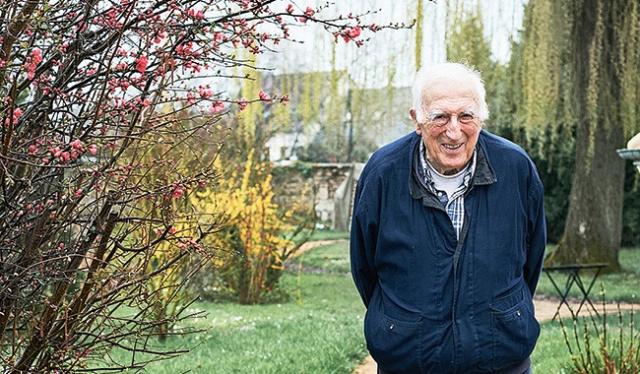The Rev. Donna Tourneur reflects on the experience of attending Jean Vanier’s funeral this summer.

Many may have missed it. Some won’t even care, but these words are important to remember. People had come from all over the world to celebrate the life of Jean Vanier. We like to call him the founder of the L’Arche movement, but the words spoken by the current International Leader, Stephan Posner, have stayed with me. He reminded those assembled that Vanier preferred to think of himself not as the founder of L’Arche, but as the “first to arrive” at L’Arche.
L’Arche is about relationship; starting it would be more like starting a family than founding a movement. You don’t think of yourself as a founder when you begin a family—possibly more like the grandparent of descendants still to come. The point was well made. Those who knew Vanier best agree that he was far from perfect, that he hurt people, and that he was aware of his sharp tongue and flawed nature. He was, of course, human, as well as deeply Christian.
Yet, he offered himself as a servant to others, and was an example to many. He was a good man who tried his best to shine a light in a dark place. The light was never meant to reflect himself, but the eternal love which existed before any of us and remains beyond our knowing. The relationship grew into a vision of what might be possible in a world so deeply divided. When we live with the needs of the most vulnerable in focus, we live into the life of Jesus.
Glimpses into the first Christian community reflected in the book of Acts reveal the struggles of community. The goals are often easier to imagine than to live. For example, holding all things in common, and using only what you personally need, are practices that intentional communities often struggle with. Selflessness is not easy for anyone.
Perhaps the unsung hero of the Vanier family was Jean’s mother, Pauline. After her husband Georges died, she attended a retreat, where she heard once again the reading about the rich young man who is told that to enter the kingdom, he has to sell his possessions and give them to the poor. She immediately knew that she would sell all she had and move to Trosly-Breuil in northern France with her son, to live in community there. Her generosity supported the movement in financial and spiritual ways, and she became fondly known as grand-mère in that community.
The point is, we all need mentors and visionaries. As we live into the inclusive invitation of Jesus, we bring with us our flawed human selves, ready to love and forgive, to be loved and be forgiven, and as eager to be a light in a dark place as we are to receive the light in our own darkness. It’s something to remember as we strive to live a faith for today.
Attending the funeral of one so deeply loved filled me with joy and humility. My role as one of four church leaders who support the international leadership team brought me there. It also invited me to bring a female, Protestant, North American theological voice to the issues and challenges in the international L’Arche organization.
Yet it is so much more. The lessons learned within this evolving movement offer a unique perspective on issues such as inclusion, belonging, humility, service, and community life—all things that L’Arche can teach the church. Although I have a dominant memory of exclusion from that day, I could not help but sit back and ponder what this man and the movement have begun. Imagining a better world is easy when surrounded by such authenticity and service.
—The Rev. Donna Tourneur is minister at Trinity United Church in New Glasgow, NS.